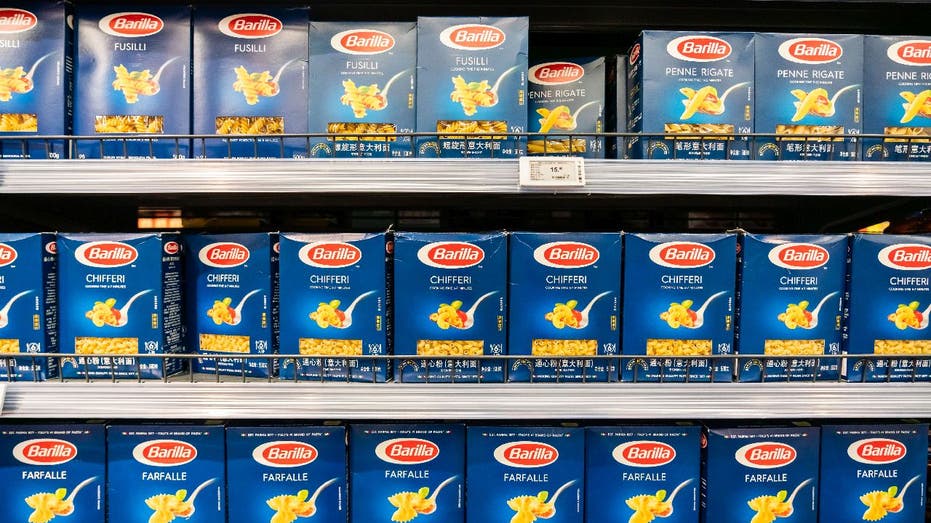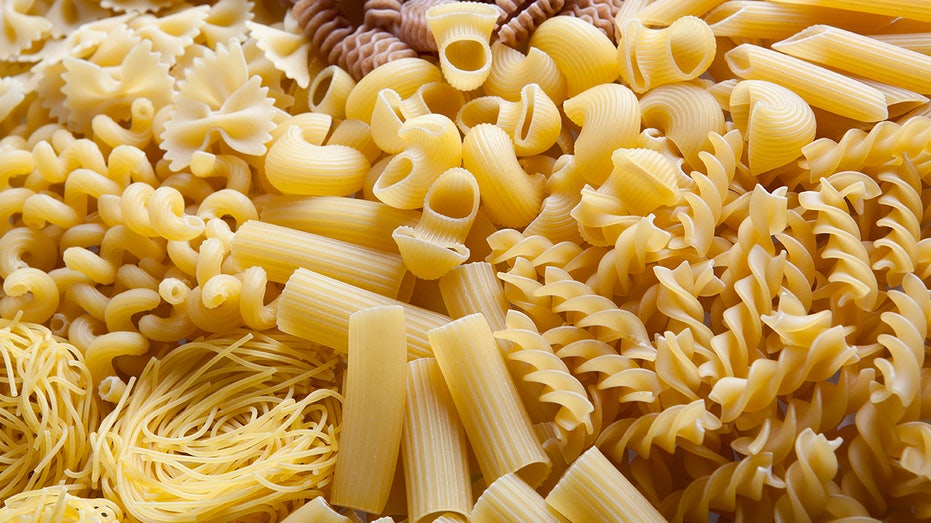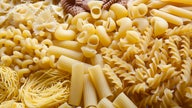The White House is pushing back on reports that imported Italian pastas could disappear from U.S. store shelves.
The Commerce Department released a preliminary decision in September to 13 Italian pasta exporters imposing a 92% tariff rate on the pasta they import. The brands include Barilla and Rummo, among others.
However, this decision stems from a 1996 Commerce Department ruling that stated Italian pasta was being dumped on the U.S. market for lesser values.
COSTCO RECALLS 1M BOTTLES OF SIGNITURE DRINK

Italian family-owned food company Barilla pasta products seen in a supermarket. (Alex Tai/SOPA Images/LightRocket via Getty Images / Getty Images)
White House spokesman Kush Desai told Gxstocks’ Edward Lawrence the Italian exporters did not provide staff with all the necessary data.
"Italian pasta makers repeatedly screwed up a simple data request for a routine review of an anti-dumping probe that has been ongoing since 1996, during the Clinton presidency," Desai said. "After they screwed up their initial responses, the Commerce Department explained to them what the problems were and asked them to fix those problems; they didn’t. And then Commerce communicated the requirements again, and they didn’t answer for a third time. The Commerce Department’s preliminary finding, based on incomplete information since the pasta makers didn’t provide it, was a 91.74 percent duty. The pasta makers still have several months to continue participating in this review before this preliminary finding becomes finalized."
The officials say Commerce employees reached out to the companies seven times before the preliminary ruling. Most did not respond, but the ones that did, didn't provide the proper data. Therefore, those companies received the worst possible anti-dumping tariff rate of 92%.
BESSENT ON PRICE RELIEF FOR COFFEE, FRUIT

Pasta variation showing several types of uncooked pastas. (iStock)
The officials say this rate is not set in stone – it's preliminary, and can be appealed. If the companies provide the data requested by the U.S., then the anti-dumping tariff rate would roughly be between 7% and 10%.

Italy has appealed to Washington and the European Commission in an attempt to dissuade the US from imposing a punitive tariffs on pasta imports, a deeply unpopular measure among producers. (AFP Photo by RONALDO SCHEMIDT/AFP via Getty Images)
There are regular interval reviews of the data to set an anti-dumping tariff rate. This is all run by the non-political staff in the Commerce Department. A Commerce official says no political appointees are allowed to interfere with the non-political staff ruling by statute.
GET Gxstocks ON THE GO BY CLICKING HERE
By statute, the non-political staff runs the review process and makes the decisions regarding tariffs that meet the 1996 ruling.




